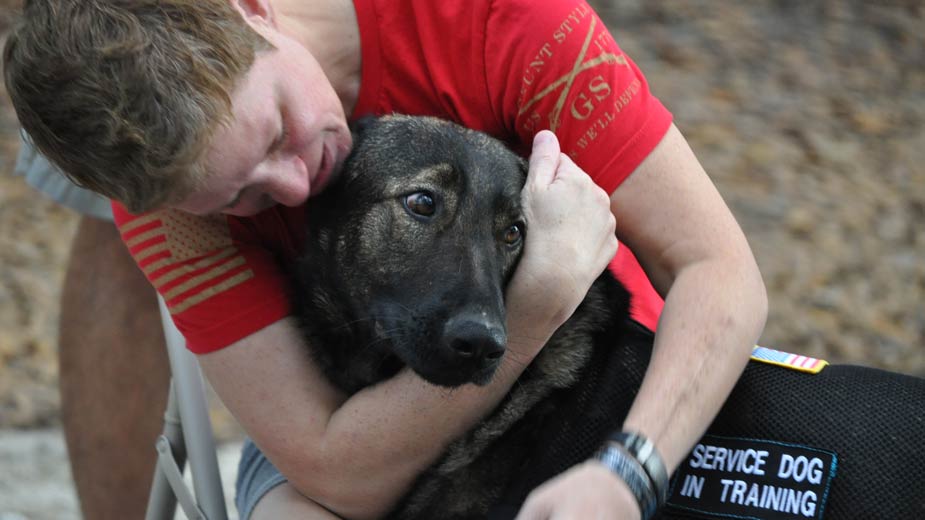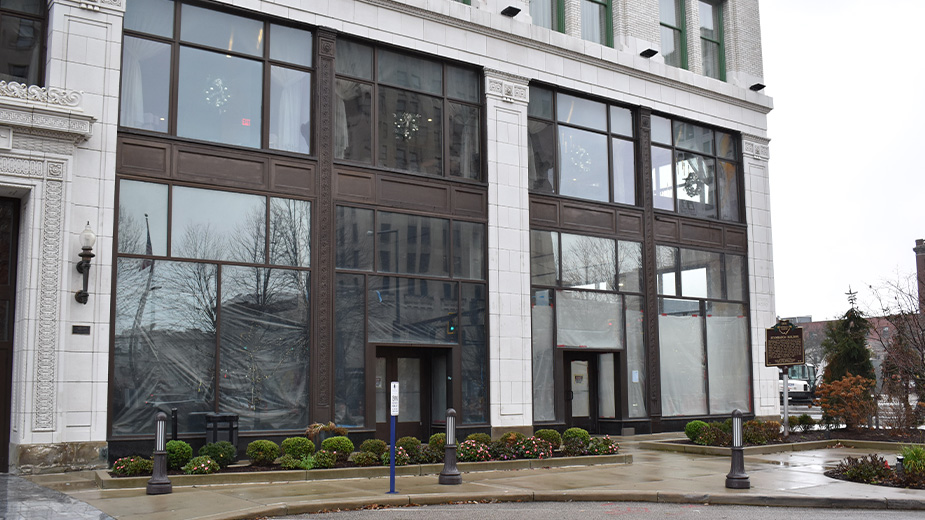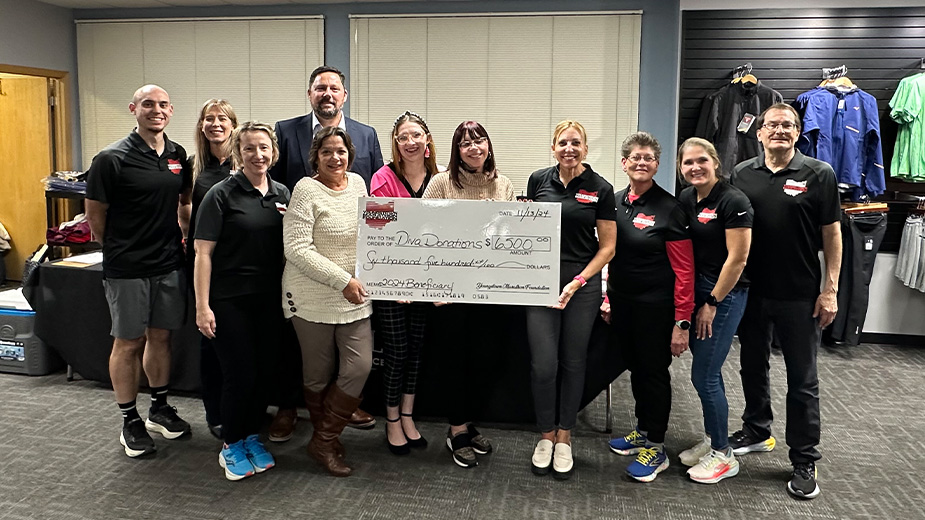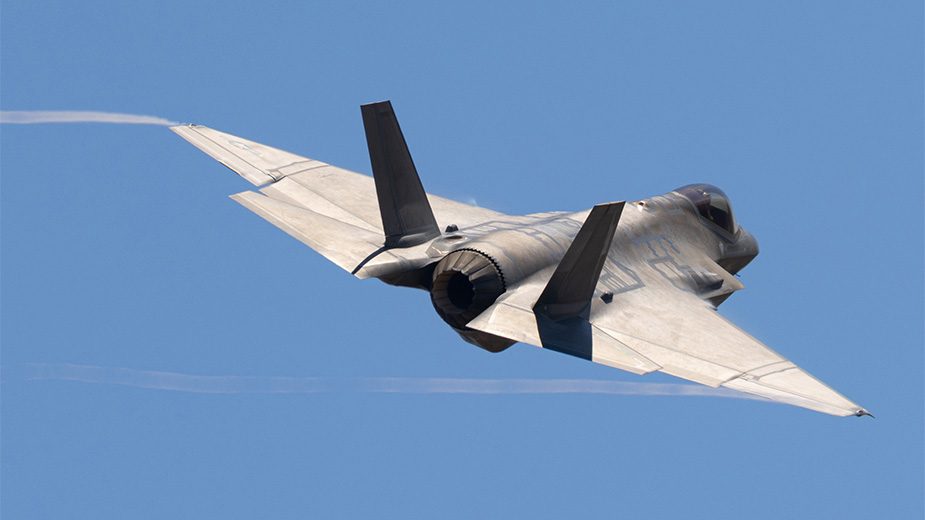Armstrong Helps Guardian Angels Pair Vets with Dogs
YOUNGSTOWN, Ohio — Since she founded Guardian Angels Medical Service Dogs seven years ago, Carol Borden has had her heart broken by the phone calls that come into her office more times than she can count. Most callers to the Florida charity are veterans.
But it’s those calls that keep her and the staff at Guardian Angels working to help those who need it most.
“These people are in a very dark place. Frequently, they’ve had multiple suicide attempts,” says Borden, CEO and co-founder. “We’ve seen people who are self-isolating, some who haven’t been out of their homes in 25 years. We’ve seen people who haven’t left their bedroom in six months.”
When employees at the Armstrong Group of Companies, Butler, Pa., heard about Guardian Angels through another company in their industry, Veterans Cable Services in Bethel Park, Pa., they knew they had to help.
“Knowing that this impacts our communities resonates with us. We thought, ‘It’s perfect.’ We want to give back to our communities and to those who serve,” says Megan Ellashek, the community-marketing manager in the North Lima office of the cable company. “Everybody said, ‘This is grassroots. This is something we have to be involved in.’ ”
Those conversations, with both Guardian Angels and Veterans Cable Services, led to the creation of Armstrong’s Healing Heroes campaign.
Training serv-ice dogs is neither quick nor cheap. Over 15 to 18 months, the dogs are taught basic manners and skills, such as opening doors and turning on lights, before they get into advanced skills such as detecting seizures, changes in blood-sugar levels and nightmares that stem from PTSD.
“There is a tremendous amount of training a dog that’s going to be in public and be a caregiver so it doesn’t get distracted by what’s going on around them,” Borden says. “The dog has to be ready to say, ‘Whoa, timeout,’ instead of being distracted by traffic or by kids who want to pet them.”
When training is completed, the dogs are considered “medical equipment with a heartbeat,” she says, and under the Americans with Disabilities Act cannot be denied access to public places such as restaurants, stores and theaters.
“Service dogs are the only ones protected by both state and federal law, meaning they’re the only ones who have a right to be in public,” she says.
It costs about $22,000 to train one dog, she says. For the Healing Heroes program, Armstrong is funding five dogs – one in each of its service areas – by raising $55,000 and matching that sum with a donation from the company.
“We don’t know where the dogs are going to go, but it’s an incredible program,” says Ellashek. “There’s such a need. So many people who serve our country deserve this. They come back and have such a hard time adjusting.”
Fundraising began the week of Veterans Day with spots on cable TV, a tab on the company’s Facebook page and other calls to action. Among the upcoming efforts to raise funds are public events, promotional items and social media campaigns. Donations can also be made through Guardian Angels’ website, MedicalServiceDogs.org.
Armstrong has no say over who will receive a service dog from the charity, notes Tara Hardsock, community-marketing manager at Armstrong’s office in Zelienople, Pa. The only requirement is that a recipient live in one of its five service areas in Pennsylvania, Ohio, West Virginia and Maryland. Recipients do not have to be Armstrong customers.
Guardian Angels, based in Williston, Fla., receives about 40 requests for service dogs per day, Borden says. But because of the time needed to train a dog, it can match only 45 to 50 requests per year.
To be matched, those seeking a service dog – frequently veterans – call the charity and are sent a 13-page information packet to fill out and return with accompanying references and confirmation of disability.
Then, those selected travel to Florida for a 10-day orientation that covers “the life changes that go with having a service dog,” Borden says. “We teach them how to use their dog, to depend on them, how the dog becomes their right hand and their soul mate. They become the battle buddy that has their back, just like on a battlefield.”
The final two days are spent pairing the dogs with their new owners, with the recipients taking the dogs back to the hotel to stay the night. This has happened scores of times, but one overnight stay for a Pennsylvania veteran stands out in the mind of the CEO.
It was the morning after the night each recipient had been paired with a dog. As the group met in a circle and went around the room, each shared how he spent the night.
“One man said that was the first time he’d slept a full night since 1969. That is amazing,” Borden says, pausing a moment. “The emergence within hours is incredible. We get families who call us to say the [recipient’s] voice has changed so much. The self-confidence has changed. It’s so impactful so quickly.”
Pictured: Natalie hugs her service dog, Bugg, at Guardian Angels’ orientation. To respect veterans’ privacy, the charity doesn’t release last names.
Copyright 2024 The Business Journal, Youngstown, Ohio.



